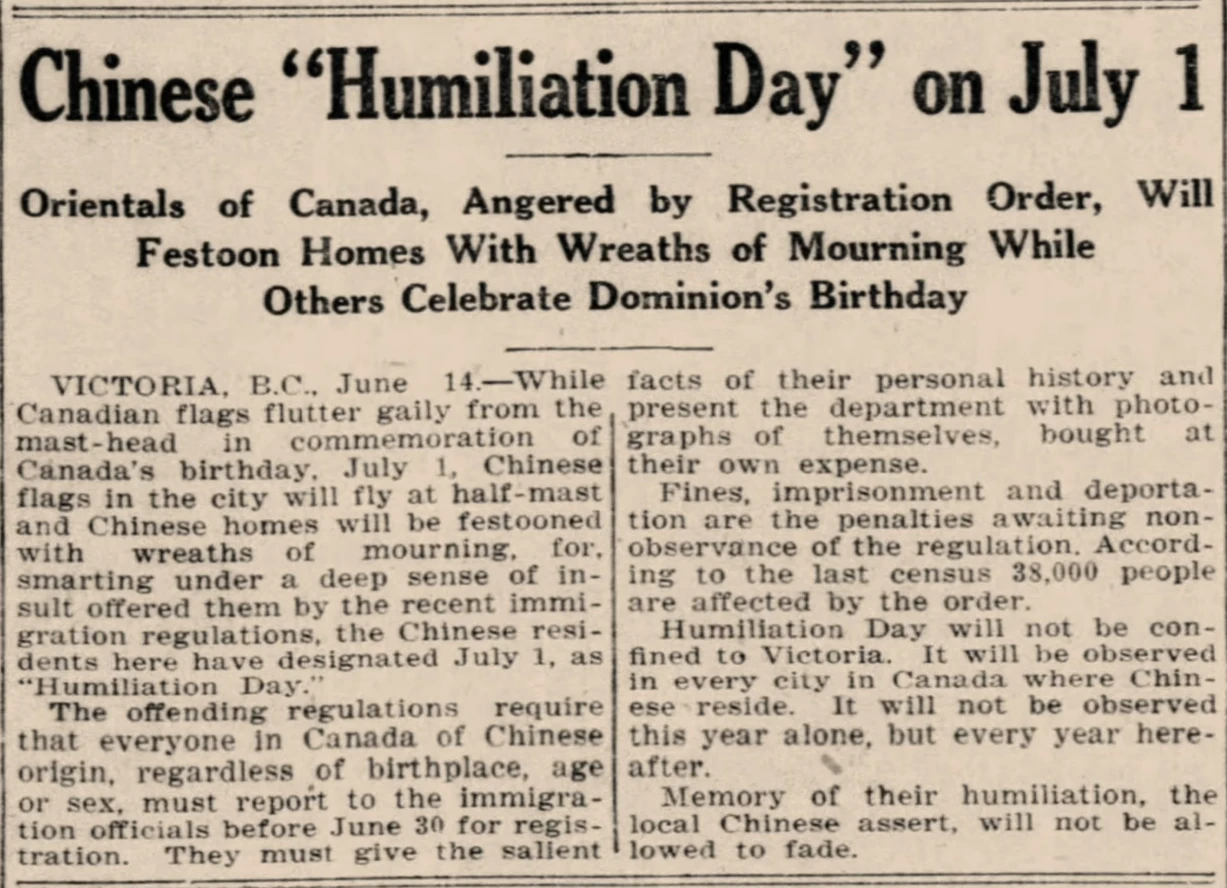
Zoom: 100%
Newspaper clipping of Windsor Star by Catherine Clement
Humiliation Day: Chinese Exclusion Act Enacted (July 1st - Dominion/Canada Day)
July 1, 1923, marked the enactment of the Chinese Immigration Act, known as the Chinese Exclusion Act—a date mournfully etched in Chinese Canadian history as 'Humiliation Day.' This legislation replaced earlier head taxes with an almost complete ban on Chinese immigration, lasting for 24 years until its repeal in 1947. The Act's implementation on Dominion Day (now Canada Day), which originated on July 1, 1867, was a cruel irony, underscoring the community's legislated exclusion and the profound discrimination they faced. It tore families apart, prevented reunification, and created immense hardship and isolation for Chinese individuals already in Canada and those hoping to immigrate. The Chinese Exclusion Act was the culmination of decades of racist policies designed to limit the Chinese presence in Canada, profoundly shaping the demographic and social fabric of the Chinese Canadian community for generations. In stark contrast to this historical injustice, and as a testament to resilience and remembrance, July 1st also sees significant commemorative activities. For instance, the Chinese Railroad Workers Memorial in Toronto, shaped like part of a railway trestle, serves as a vital landmark. Annually on Canada Day, the Foundation to Commemorate the Chinese Railroad Workers in Canada (FCCRWC) hosts an impressive rededication ceremony there, drawing hundreds to acknowledge the Chinese community's crucial contribution to building the transcontinental railway. In addition, for Indigenous peoples, July 1st may marks a day of mourning and a stark reminder of the ongoing impacts of settler colonialism, including land dispossession, forced assimilation, and systemic injustices that continue to affect their communities.